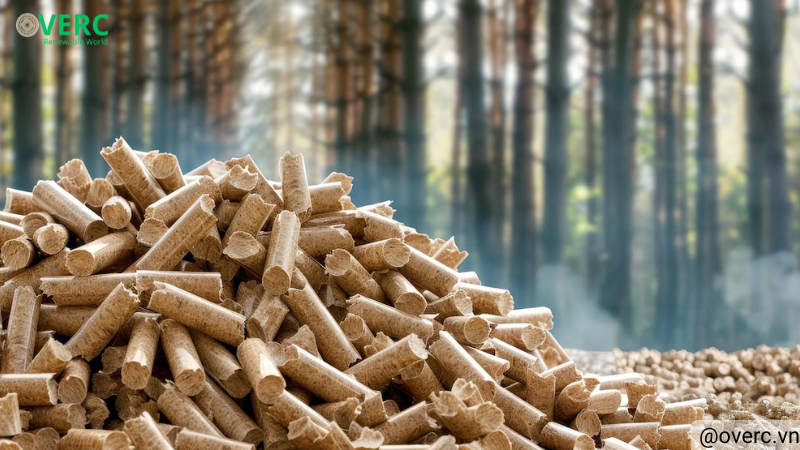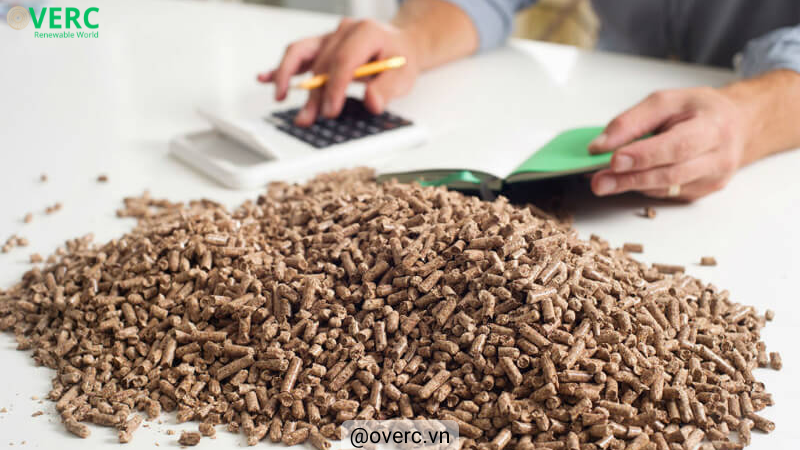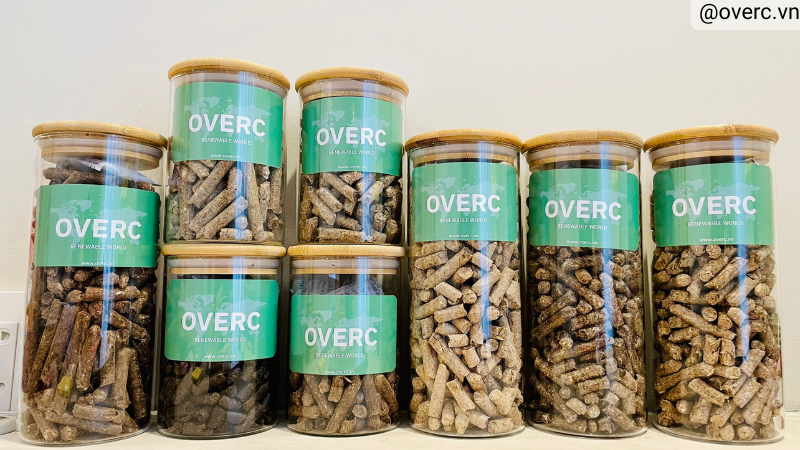
In recent years, the demand for biofuel products like wood pellets has witnessed a significant surge in Vietnam. This trend aligns with the growing emphasis on environmental sustainability and the adoption of renewable energy sources. Among these eco-friendly products, wood pellets have emerged as a frontrunner.
Market Growth and Demand
Statistics reveal that Vietnam’s wood pellet production has steadily increased from 150,000 tons in 2015 to 250,000 tons in 2020, reflecting a remarkable 67% growth rate over the five-year period. Forecasts predict that this upward trajectory will continue, with production reaching 350,000 tons by 2025, driven by high market demand.
Pricing and Factors Influencing Costs

Wood pellets are currently priced at an average of 3-4 million VND per ton, it can be changed based on quality and brand. Certified products from trusted manufacturers generally command higher prices compared to the others . Pricing is also influenced by the type of raw material used, production processes, transportation costs, and other factors.
Raw Material Sources and Production Processes
Wood pellets are typically manufactured from various wood species, including pine, oak and acacia. These resources are sourced from renewable sources such as plantations, wood waste from processing facilities and other secondary sources. Wood pellet production techniques have undergone advancements and modernization, leading to improved product quality and enhanced production efficiency.
Growth Drivers and Market Potential
The wood pellet market in Vietnam holds immense promise for future development, fueled by several key factors:
Rising Demand for Renewable and Eco-Friendly Energy Sources: The transition towards sustainable energy solutions is driving the adoption of wood pellets as a cleaner alternative to conventional fuels.
Government Policies Promoting Biofuel and Carbon Emission Reduction: Supportive government policies encourage the use of biofuels and aim to reduce carbon emissions, further propelling the wood pellet market.
Trend Towards Green and Sustainable Products: The growing preference for environmentally friendly products among households and businesses is creating a favorable market landscape for wood pellets.
Expansion of Wood, Forestry, and Related Industries: The growth of these sectors generates abundant raw material for wood pellet production, further supporting market expansion.
Advancements in Wood Pellet Production Technology: Continuous advancements in production technology are enhancing pellet quality, productivity, and overall efficiency.
Challenges and Considerations

Despite the promising outlook, the wood pellet market in Vietnam also faces certain challenges:
Intense Competition from Other Fuel Sources: Wood pellets must compete with established fuel options like coal, oil, and natural gas.
Consumer Concerns Regarding Quality and Safety: Some consumers remain skeptical about the quality and safety aspects of wood pellet products.
Transportation Costs and Logistics Impacting Product Pricing: Transportation and logistics expenses can significantly influence the final price of wood pellets.
Raw Material Supply Fluctuations: Climate change and other factors can disrupt the stability of raw material supply.
Conclusion
Vietnam’s wood pellet market presents a compelling opportunity for growth, driven by abundant raw material availability, supportive government policies, and the increasing adoption of renewable energy sources. While challenges exist, such as competition from conventional fuels and consumer concerns, the overall outlook remains positive. Wood pellet producers and businesses are well-positioned to capitalize on this expanding market and contribute to Vietnam’s transition towards a more sustainable energy future.
Source: Overc Team synthesize, analyze and write articles.
***
OVERC are professional company in the field of producing and distributing Wood Pellets, Wood Chips, Sawdust Block, Plywood & Wood Toys.
We are also the purchasing representative for many products in Asia for large corporations around the world.
Our mission is to create a more renewable energy future and a better world by distributing one of the top quality wood products under the sustainable standards, that is “Renewable World”. OVERC Co.,Ltd was established in Vietnam, which has 17 FTA (Free Trade Agreement), one of the countries with the most FTAs in the world.
OVERC Co.,Ltd would like to wish you all the best at this time.
For more information on our products, please visit our website at OVERC.VN – Renewable World.